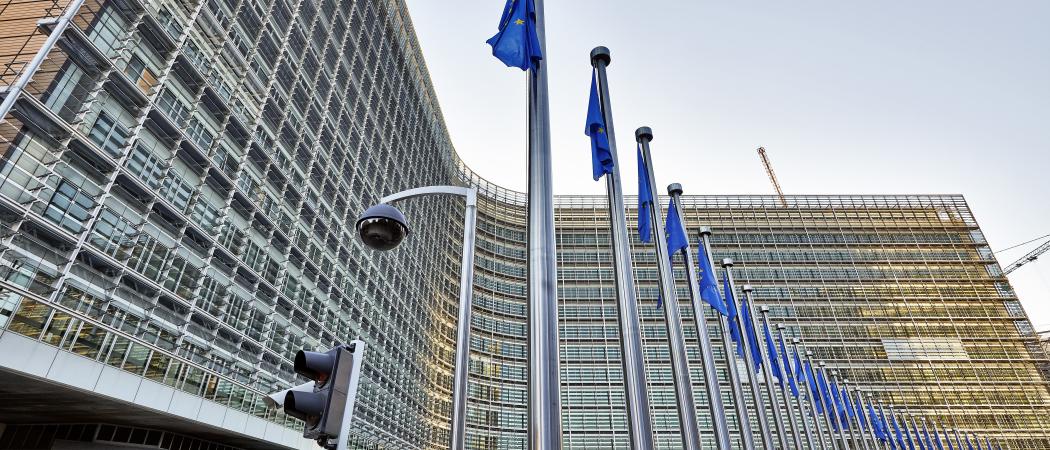Commission wants “fast track” action on its proposed Horizon Europe legislation, but many in member states and Parliament balk

A behind-the-scenes political tussle has broken out in Brussels over what at first glance seems a purely procedural question: How fast can you write legislation? At stake is the size and shape of the next European Union research programme, Horizon Europe.
Since the European Commission on June 7 proposed a €94.1 billion Horizon plan for research spending from 2021 - 2027, it has been pushing for a “fast track” procedure to get the key elements signed off by the European Parliament and Council before the May 2019 European elections. The stated reason: To provide certainty - as quickly as possible - on as much of the EU’s overall budget as possible in order to send out a strong pro-Europe statement running up to the elections.
But the plan has run into a blizzard of objections from many quarters in the past few weeks, with some member states calling it a power play by the Commission, as well as impractical. The proposed legislation is very broadly drafted, or as one official put it, “void of detail”. And, critics say, rushing through the normally lengthy EU legislative process could end up with some very expensive mistakes that the Parliament and member states would have difficulty correcting later on.
The issue may come to a head on July 16 and 17 in Vienna, when EU research and industry ministers are due to discuss the plan. That follows on from a preliminary meeting of officials in Brussels on 9 July which ended without a clear outcome. While many Brussels insiders are already gossiping about the matter – not for attribution, of course - Jean-Eric Paquet, director general for research and innovation, declined an interview request on the issue from ScienceǀBusiness.
On the table is the most ambitious plan for research and innovation that the EU has attempted since it began broad, multi-sector R&D programmes in 1984. Horizon Europe would boost funding for basic science, social sciences, industrial R&D and entrepreneurship from the current, €77 billion, seven-year programme, to €94.1 billion – and this, despite the likely loss of the UK as a full member of the club. The plan is vying for funding in an overall EU budget of more than €1 trillion and is competing against even bigger programmes for farmers and regional development authorities. But at least eight of the 27 post-Brexit EU member states oppose a bigger EU budget, making the May 2019 target for reaching agreement difficult in the best of circumstances.
Broad and vague
A particular controversy over the R&D legislation, however, concerns the way the Commission has written it, several sources say. Compared to past programmes, the draft legislation for Horizon Europe is much shorter, with relatively sparse details on exactly which topics and technologies will be supported, and with how much of the budget. The legislative package also compresses three laws, or regulations, into two, in an effort to simplify matters. And it invokes a broader range of treaty provisions than in the past.
All these details, under the Commission’s plan, will be worked out in coming months and years in a new process of “strategic programming”. This entails the Commission convening large groups to work on successive drafts – starting in Brussels among all relevant directorates-general of the Commission, and including member-state representatives. The first such draft is due for completion by year-end, after which it would be published for public consultation and finalised before the May elections.
The problem, critics say, is that it provides only a half year for the main decisions to be reached by Parliament and Council over the broad legislation – while at the very same time lower-level officials from the Commission and member states would be doing the specific, detailed planning.
That means costly disconnects could happen between the two processes. And once the main legislation is done, the Parliament would have little say on any further changes to the detailed working plans. At most, the Parliament could vote to reject a plan it didn’t like – but it couldn’t force the Commission to amend it. That’s important because, in a programme not due to end for another decade, the odds of policy priorities changing are high, and Parliament would want a say.
Normally, this kind of inside-Brussels legislative talk wouldn’t matter outside the city, but the issue coincides with some big political problems. One is the fear that the May 2019 elections could yield a rightward, anti-Europe shift in the Parliament, making any funding increase impossible. Hence, the attempt, so far backed by the German and French governments for some form of accelerated action. Another is more personal, with speculation that EU Research Commissioner Carlos Moedas and his Commission colleagues want a big achievement before their terms end in November 2019.
The whole issue of timing will be settled, one way or another, on November 30 at the latest. That’s when EU research and industry ministers will attempt to approve the first, rough plan for carving up the money by topic. But whether there will be any agreement on a law to authorise spending it remains an open question.





 A unique international forum for public research organisations and companies to connect their external engagement with strategic interests around their R&D system.
A unique international forum for public research organisations and companies to connect their external engagement with strategic interests around their R&D system.